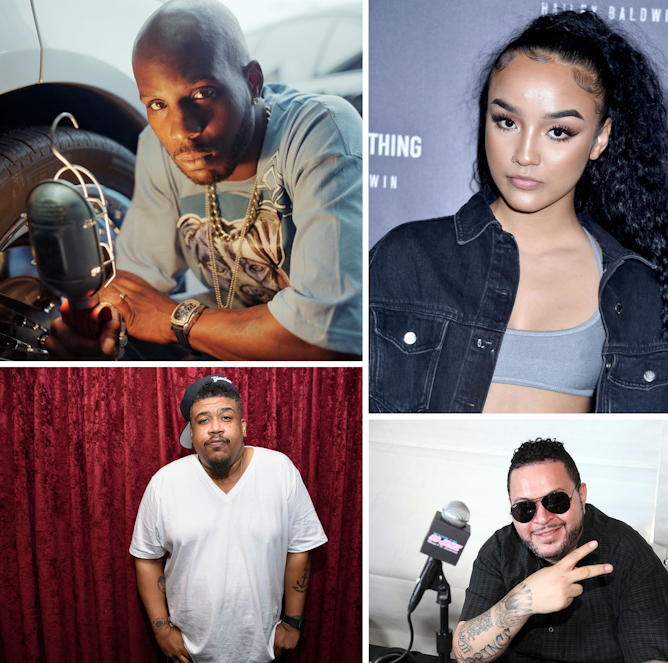|
|
|
|
Back in the day, even by their own dopest standards, none of the early rappers could predict that a hip and a hop would actually not stop on its way to becoming a billion-dollar global industry.
It all started on Aug. 11, 1973, when DJ Kool Herc mixed some beats during a back-to-school party in the South Bronx. Since then, hip-hop has left a significant footprint on modern culture. It also revealed the pain and struggle of growing up and living on the margins of mainstream society, not only in America but across the world.
To celebrate hip-hop’s 50th anniversary, The Conversation asked several scholars to explore a range of topics that evolved from the beats and the rhymes, everything from misogyny and homophobia to violence and drugs. Here are selections from those articles.
|

|
Howard Manly
Race + Equity Editor
|
|

Hip-hop culture spread quickly – to places like London, seen here in 1984.
Kerstin Rodgers/Redferns
Nick Lehr, The Conversation; Jamaal Abdul-Alim, The Conversation; Matt Williams, The Conversation; Molly Jackson, The Conversation; Howard Manly, The Conversation
On Aug. 11, 1973, a block party in the Bronx spawned a genre that would go on to influence nearly all aspects of US culture – and the music, fashion and art of countries around the world.
|

Hip-hop culture brought graffiti art, breakdancing, emceeing and DJing to prominence.
Michael Ochs Archives/Getty Images
A.D. Carson, University of Virginia
As the world celebrates the 50th anniversary of the birth of hip-hop, a scholar of the culture and its musical genres explores the meaning of the word ‘dope.’
|

Hip hop artists, from top left, clockwise, DMX, Lexii Alijai, Prince Markie Dee and Trugoy the Dove have all passed away within the past decade.
Getty Images
A.D. Carson, University of Virginia
As hip-hop turns 50, an unfortunate reality is that so many of its pioneering artists never live to see much more than 50 years themselves, a professor of hip-hop writes.
|
|
|

Eric Charry, Wesleyan University
Hip-hop traveled far after being birthed by Black Americans in US cities. The journey hasn’t always been smooth.
| |

Toby Jenkins, University of South Carolina
Once considered a novelty in school, hip-hop has spawned an array of educational programs and initiatives that are reshaping the way educators teach and how students learn.
|

A.D. Carson, University of Virginia
From Tupac to Jay-Z, many a rap artist has set pen to paper to pay homage to the women who gave them birth.
| |

Su'ad Abdul Khabeer, University of Michigan
A scholar explains how a concept that appeared in Nation of Islam literature nearly a century ago essentially defines hip-hop’s consciousness today.
|
|
|
|
|
-
Katelyn Best, West Virginia University
Dip hop artists move across the stage, hands flying through the air, as audiences pulse to the rhythm of a blasting bass beat.
-
Roy Whitaker, San Diego State University
Afrofuturism, a mix of science fiction, magic realism and liberation politics, has shaped some hip-hop artists’ work for decades.
-
Armin Langer, University of Florida
Born out of the pain and anger in Black American communities, rap music struck a similar chord throughout Europe, as immigrants struggle to retain their ethnic identities on the margins of society.
-
Alejandro Nava, University of Arizona
Latino artists have been forging their own paths in hip-hop for decades, giving voice to young peoples’ pain, faith and demands for change.
-
Matthew Oware, University of Richmond
Greater representation in rap from LGBTQ artists comes as mainstream artists atone for past lyrics.
|
|
|
|---|
-
More of The ConversationLike this newsletter? You might be interested in our weekly and biweekly emails: Trying out new social media? Follow us: -
About The ConversationWe're a nonprofit news organization dedicated to helping academic experts share ideas with the public. We can give away our articles thanks to the help of foundations, universities and readers like you. |
|
| |
| |
| |
| |
|
|
|
|
|
|
|